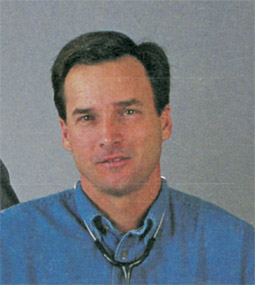We used to treat peptic ulcers and heart disease with diet, rest and stress reduction? Seriously?
 Forty years ago, I was a fourth-year medical student closing in on that coveted M.D. degree and the family practice residency that would follow. I moved to Santa Rosa to start practice in 1980 and, now—kaboom!—here we are looking back and taking stock. It’s been an amazing and rich career, one that started with the unbridled optimism and energy of a young doctor that now is slowly giving way to the wistful perspective of time.
Forty years ago, I was a fourth-year medical student closing in on that coveted M.D. degree and the family practice residency that would follow. I moved to Santa Rosa to start practice in 1980 and, now—kaboom!—here we are looking back and taking stock. It’s been an amazing and rich career, one that started with the unbridled optimism and energy of a young doctor that now is slowly giving way to the wistful perspective of time.It was a different medical era back in 1974. There was no ultrasound, CT or MRI. There was no Prozac, Ambien or Lipitor. Heart attacks were treated with bed rest, not angioplasties. Women took hormones and Valium for the “change.” Breast cancer was diagnosed after the discovery of a lump. In the early 1980s, I remember a few old docs smoking cigarettes in the exam room while listening and percussing a patient’s emphysematous lungs!
That was a different time for sure. Now, of course, we have miraculous technology; it’s a digital world with omnipresent connectivity and data at our fingertips. We talk about practicing modern medicine that’s based on real, hard science, not that outdated brand of doctoring that now seems so shockingly primitive. We used to treat peptic ulcers and heart disease with diet, rest and stress reduction? Seriously?
But even with technology, reform and the modernization of medical care, some things haven’t changed. Now, I’ll pull out the trusty “retrospect-o-scope” and make a few observations after 40 years in the trenches of primary care.
1. Be a skeptic. When it comes to your health, there are no freebies. I don’t have any confidence whatsoever that vitamins, supplements, herbal remedies or virtually any fad diet that hits the pop culture scene has any merit or ongoing value. No matter how enamored we’ve become with biotech, there’s still no substitute for the basics of being healthy: exercising, staying trim, eating and drinking in moderation, enjoying friendships, loving your family and living well.
2. If you aren’t careful, your doctors will give you too many pills. If you go to a doctor (or two or three) with headaches, anxiety, high blood pressure, high cholesterol and an achy back, you could end up taking five different medications. Consider the first item on this list (there’s no substitute for the basics of being healthy) and you might eliminate five pills and one (or two or three) doctors.
3. Orthopedic surgeons are always big, burly, brusque guys who used to play rugby. Pediatricians are always small and nice. Ophthalmologists are always soft-spoken and would never paint themselves in silver and black and attend a Raider’s game. Think about it.
4. Find a good primary care doctor. No matter what happens with the future of health care, everyone will need a strong relationship with their primary care physician. Seeing a doc-in-the-box at the local drug store may be OK for a sore throat, but when things gets complicated, you need your doctor to be there for you.
5. Finding a great young family doctor is getting tougher and tougher. Comparatively speaking (and yes, I’m biased here), they’re under-compensated and underappreciated. Find a good one and it’s like a “spoonful of sugar.” After all, family doctors are like Mary Poppins: “practically perfect in every way.”
6. Health care reform is going to be a nasty fight that plays out over decades. No one—not even really smart people—knows what’s going to happen and how it will end up. There’s no easy solution that balances the free market (which won’t work in health care) and complete government control (which is scary to contemplate). Batten down the hatches and prepare for the worst: There’s a big storm blowing in.
7. If you’re dissatisfied with your doctor, it’s probably not from poor medical care. It’s more likely because you don’t perceive that the doctor really cares. It’s because your doc’s head is buried in the computer while you’re trying to explain how you feel. This isn’t unlike coming home from work after a tough day to unwind with the newspaper and a glass of wine and your spouse wants to talk all about the day. (This has never happened to me, of course, but I hear it can be a problem…ahem….)
8. The single greatest thing about being a family doctor for the past 40 years is the wonderful relationships I’ve enjoyed with my patients. I like to think that these relationships have gone both ways. As I’ve gotten to know my patients, I hope they feel like they’ve gotten to know me as well. Some docs won’t let that happen and will never experience the beauty of that kind of old-fashioned “doctoring.” To borrow a great quote from Dr. Rachel Remen, “It’s not unprofessional to be a human being.”
Let’s hope that, 40 years from now, this is still true.
Dr. James DeVore has been a full-time family physician in Santa Rosa since 1980. He’s medical director of St. Joseph Health’s Annadel Medical Group.



